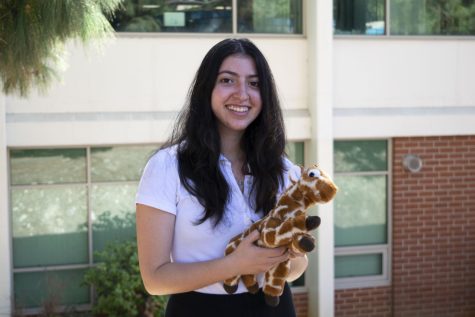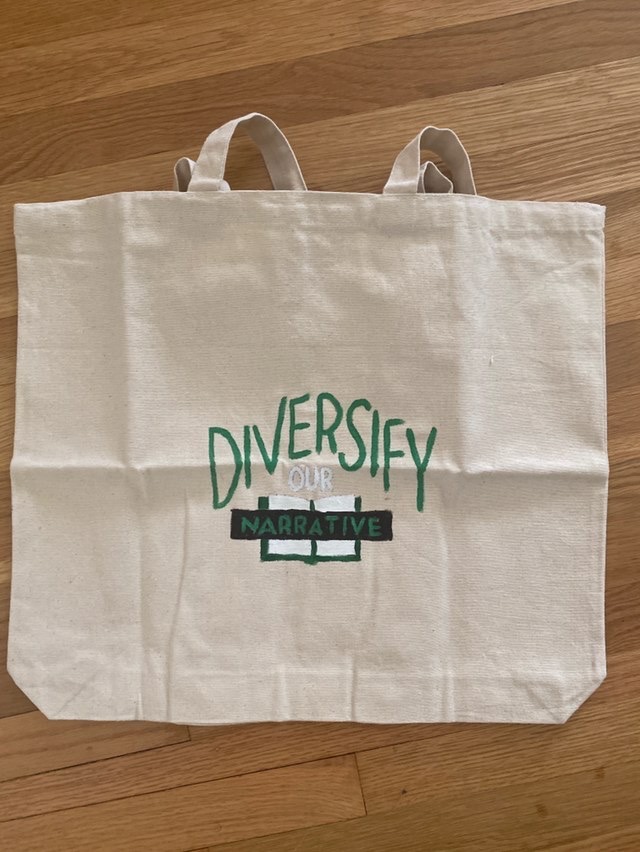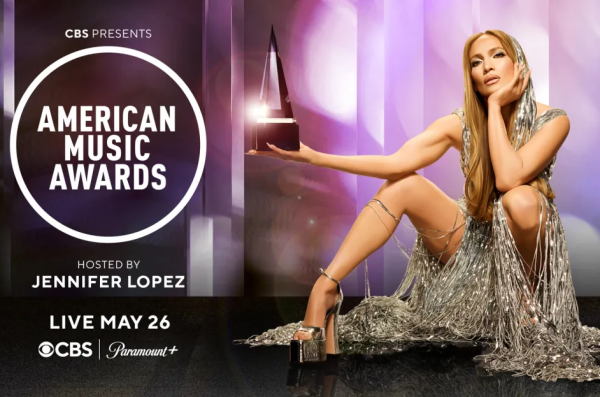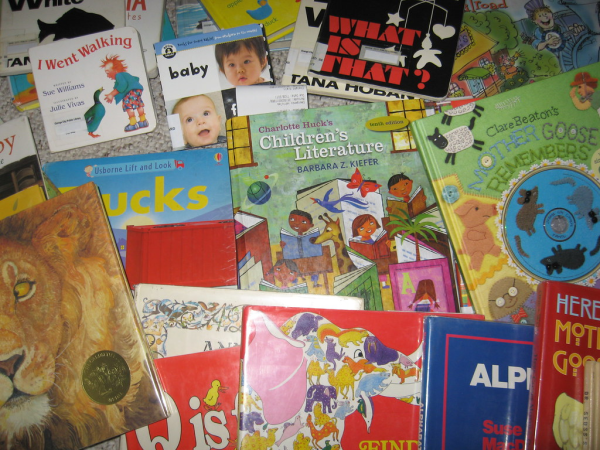Diversify Our Narrative Glendale Chapter seeks to diversify the curriculum
Diversify Our Narrative Glendale Chapter
One of the organization’s members, Parvaneh, made tote bags to give out to people who participate in the organization’s giveaway.
Glendale has started a Diversify Our Narrative chapter in late July, and some members, including founders of the chapter, are students from Clark Magnet High School. Diversify Our Narrative (DON) is an organization meant to teach students to be anti-racist and to encourage discussions around this topic in order to create a positive environment in schools.
The goal of Diversify Our Narrative is to integrate anti-racist and diverse texts in English and literature classes as the first step to a productive and safe environment where students can feel powerful in their identity. “This is the first step to more inclusive learning in schools in the United States,” says Clark senior Santana Molina.
“It’s important to have diverse texts because students may be unaware or even ill-informed on certain topics,” says Molina, who is the co-founder of the DON Glendale chapter. By adding these texts into the curriculum, classes would be able to have discussions about racism and have the opportunity to learn more about different cultures. Molina learned about DON through TikTok and was immediately interested in the organization. “I joined the organization to make a change in our community, especially with the current situation with the Black Likes Matter (BLM) movement,” Molina says.
Co-founder and Clark senior Andre Hiwatig says that systemic racism is a real issue in society; it is taught and can be changed. He believes that introducing the written texts DON advocates for would be a step in the right direction to encouraging an anti-racist mindset and behaviors.
“The curriculum taught in schools shouldn’t have to change so drastically to fit in with the world today,” says Hiwatig, “I think it only has to adapt to the different eras we are growing up in.” Some of Hiwatig’s favorite books, like The Great Gatsby, came from his English class, and he’s realized that most books students are taught are from a white male’s perspective.
Hiwatig believes that by encouraging tolerance in children from a young age, there’s a chance that people working together can remove the roots systemic racism has placed into society for so long.
Senior Sophie Peineke has noticed that many minorities barely get any representation in what students are taught in schools, let alone in the media. She recalls wishing to see herself be represented in a book teachers would teach to the class.
Peineke, who is also the Co-Director of Media and Communications, says that “growing up mixed race and mixed culture, there were a lot of lessons and experiences I missed out on because of the way our school system works.”
Peineke says she got so used to never being able to read books by and about people like her, that she never realized how big of a problem it was until she read DON’s petition calling for schools to have anti-racist texts in the classroom.

Hobbies/interests: Reading, writing, and listening to music
Fav artist: Thomas Headon, ROLE MODEL
Movie you never get tired of watching: La La Land
Goal...










